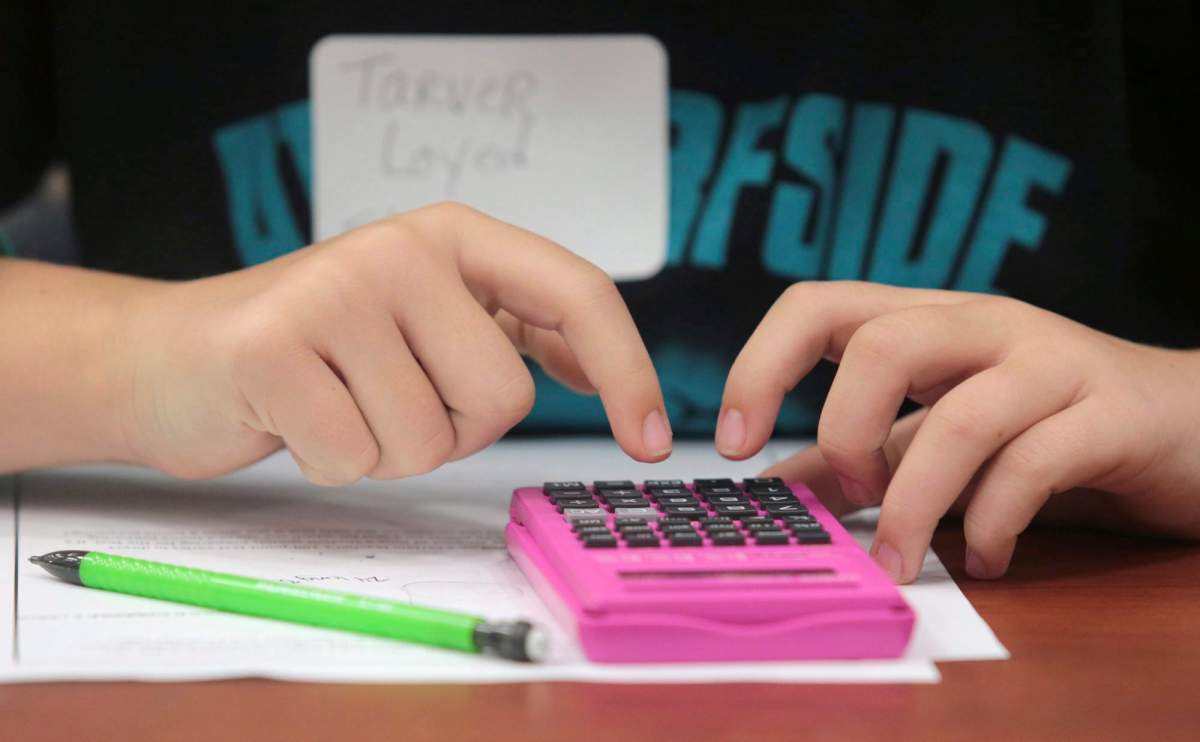The latest national assessment shows Manitoba’s Grade 8 students are being outperformed in math skills by their peers in every other province, and are falling well short of the national average.

The 2019 Pan-Canadian Assessment Program (PCAP) shows Manitoba students were 35 points behind the national average, and five points below the next lowest province, Newfoundland and Labrador.
“In Manitoba, 83 per cent of students performed at or above Level 2 in mathematics (Level 2 is the baseline or expected level of mathematics proficiency for Grade 8 students),” the report reads.
“Four per cent of students in Manitoba achieved the highest level of performance (Level 4), which was lower than the nine per cent of students achieving this level of performance in Canada overall.”
Despite the sub-optimal results, it wasn’t all bad news.
Overall math scores have been steadily increasing since 2010 (although they peaked in 2016), and the percentage of students achieving the highest level of performance grew from one per cent to four per cent.
“We’re sort of heading in the right direction, but we really do need to improve the scores overall,” said Anna Stokke, a professor and chair of the math and statistics department at the University of Winnipeg.
“One of the provinces that saw the greatest increase since 2010 is Prince Edward Island, and they brought in provincial tests at Grades 3, 6 and 9, and I think we need to do something like that. We need to be checking in every year and making the scores overall — the percentages — available to the public so we know what’s going on.”

Get daily National news
The PCAP found there was no significant difference between students from English or French-language school systems, however, boys performed a bit better than girls — a noticeable deviation from the pan-Canadian level, which found no gender gap.
Beyond standardized testing, Stokke said parents who are concerned about their child’s math skills could help.
“The first thing I would recommend to parents is make sure your kids memorize their timetables. This is absolutely imperative,” Stokke said.
“They should know these things automatically, so help your child do that. And just make sure they know those foundational skills. Make sure they know how to add and subtract and multiply and divide.
“When they’re in Grade 7 and 8, you want to make sure they’re fluent with fractions; adding and subtracting fractions, multiplying, dividing fractions. It would be better if they learned that earlier, but it’s covered late in our curriculum.”
In an email statement to Global News, Education Minister Cliff Cullen said providing Manitoba’s students with access to quality education is critical to the government’s priorities.
“While these results are not optimal, we are encouraged by the work that is being done with our education partners to get better results for students,” Cullen concluded.
Reading and Science
Manitoba students’ results in both reading and science were also less-than-desirable.
Scores in reading were 24 points below the national average, and only showed a marginal overall increase from 2010. The results for French-language students declined.
Girls posted “significantly” higher results than boys, on par with the pattern seen across the country.
The science score overall was 12 points below the national average, but for French-language students, the difference was almost twice as much.
That said, the results for both groups were markedly higher than in 2013.
Girls performed much better than boys, but the results were unchanged from 2013, while boys improved somewhat.












Comments
Want to discuss? Please read our Commenting Policy first.